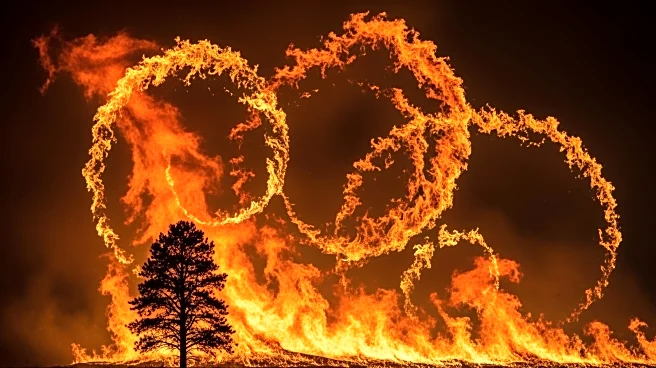What's Happening?
Wildfires, fueled by climate change and poor forest management, are becoming more frequent and severe. Rising global temperatures and prolonged droughts dry out vegetation, making it more susceptible to
ignition. While fire is a natural ecological process, the current trend of catastrophic fires poses significant threats to ecosystems and human communities. The smoke from these fires exacerbates air pollution, leading to health issues such as respiratory and cardiovascular problems.
Why It's Important?
The intensification of wildfires due to climate change has far-reaching consequences for public health, biodiversity, and climate policy. Vulnerable populations, including children and the elderly, are particularly at risk from the health effects of wildfire smoke. The destruction of habitats threatens biodiversity, while the economic costs of fire damage and management strain public resources. Addressing these issues requires a multifaceted approach, including reducing greenhouse gas emissions and improving forest management practices.
What's Next?
Efforts to combat wildfires will likely focus on both prevention and adaptation. This includes enhancing forest management techniques, such as prescribed burns, and implementing policies to curb emissions. Community planning and building fire-resilient infrastructure are also critical to reducing the impact of future fires. As climate change continues to drive extreme weather events, international cooperation and policy alignment will be essential in mitigating wildfire risks.
Beyond the Headlines
The role of fire in natural ecosystems is complex, serving both destructive and regenerative functions. Understanding this dual role is crucial for developing effective management strategies that balance ecological health with human safety. Additionally, the cultural and historical use of fire by Indigenous communities offers valuable insights into sustainable land management practices.










